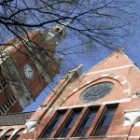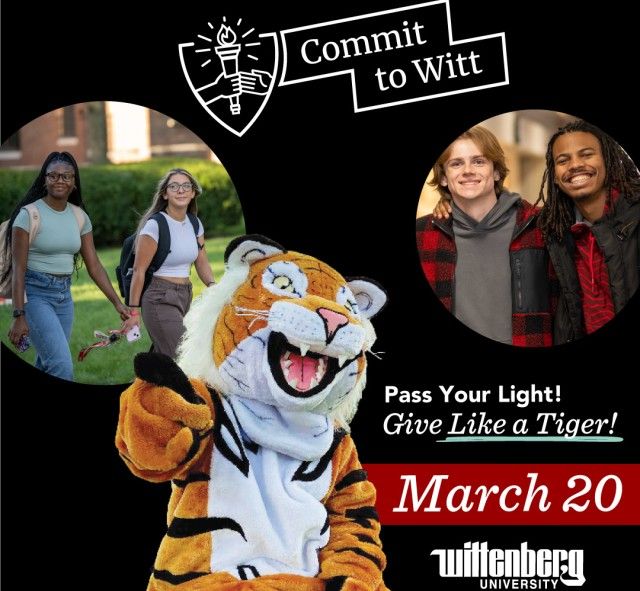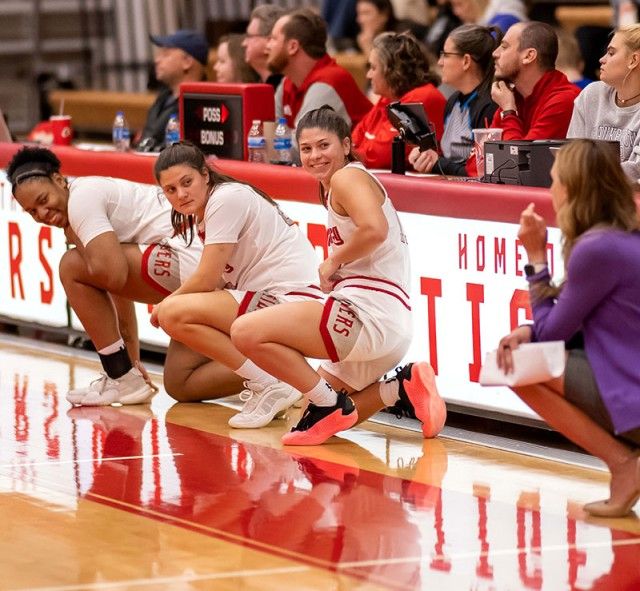Controlling an obsession can be difficult, but Deborah Henderson, costume designer for the Wittenberg University Department of Theatre and Dance, recently proved otherwise as she channeled her obsession with men’s hats into four books and a traveling exhibit.
Henderson’s book, Cowboys and Hatters: Bond Street, Sage Brush & the Silver Screen, and an exhibit by the same name, resulted from research gathered for her Ph.D. dissertation.
“In 1994 I was starting my Ph.D. and wanted a dissertation topic,” Henderson said. “While watching Sherlock Holmes on PBS, I realized that all the men were wearing different styles of toppers, bowlers and soft cloth caps. A light went off – men’s hats.”
In addition to this book, based entirely on her dissertation, Henderson created and curated an exhibit illustrating the history, manufacture and wearing of the man’s hat for the Kent State University Clothing Museum. Since that time, the “Cowboys and Hatters: Bond Street, Sagebrush and the Silver Screen” exhibit has traveled to three other museums and several historical societies, and is now on exhibit in the DeVitt-Mallet Main Gallery of the National Ranching Heritage Center, a museum and historical park in Lubbock, Texas, through July 22, 2006. During the planning process, H enderson discovered that Katherine Bloomer, Wittenberg class of 2001, serves as the technical director in the Department of Theatre and Dance at Texas Tech University – Lubbock.
“That particular museum had no display platforms,” Henderson said. “Katherine rounded up, painted and had six platforms waiting for me. I also had her technical assistance for a whole day. She was enormously helpful. She saved the day.”
Both the book and the exhibit required extensive research, which Henderson eagerly tackled. In order to put all manner of actors into hats for a variety of periods and without a ready reference for men’s hats, Henderson scoped out flea markets, friends’ attics, historical societies, hat manufacturers and stylists.
“E-Bay was both a blessing and a curse,” she said. “I finally had to cut off my husband (Jon) or go broke. We have a comprehensive overview of the hatting process and loads of fun photographs, tintypes and prints of men in all stations of life wearing all manner of hats.”
Since the awarding of her doctorate in 1996, Henderson has written three additional books titled The Top Hat, The Hand Made Felt Hat and Hat Talk: Conversations with 20 th Century Hatters.
In the process, Henderson discovered that she loved the sculptural quality of the accessory and the fabrics. “ I could not pick a favorite,” she said. “I especially love felt, out of which Fedoras are made.”
Her research included talking with and learning from a from a variety of first-, second- and the few remaining third-generation hatters who were and are devoted to their craft.
“Luckily a few remain in an era where hats are worn for specialty occasions and protection from the sun,” she said. “In talking with Sam Meyer of Meyer the Hatter in New Orleans, he said he ‘was NOT blown away and that business has exploded since so many people lost their hats in the storm.’ Men are still wearing hats.”
Henderson’s obsession not only solved the dilemma of a topic for her dissertation, it has resulted in the written history of men’s hats and a working reference for Henderson and others who require authenticity for research, theatre or film.
“I use the information to dress our students and love seeing my husband wear any one of his personal 25 hats,” Henderson said. “If you see a shortish man in a handlebar mustache and a 10-gallon hat walking in Yellow Springs, that's him.”
In her 18-year career at Wittenberg, Henderson has dressed courtesans, heroes, villains and an endless array of characters from the classical to the contemporary in student productions. She has been recognized regionally for her costume designs.
“Every little detail goes into finding those elements that support the identity of a character,” Henderson said. “Think how we feel in our own clothes.”
Written By: Phyllis Eberts '00







